rabbit r1, there is hope
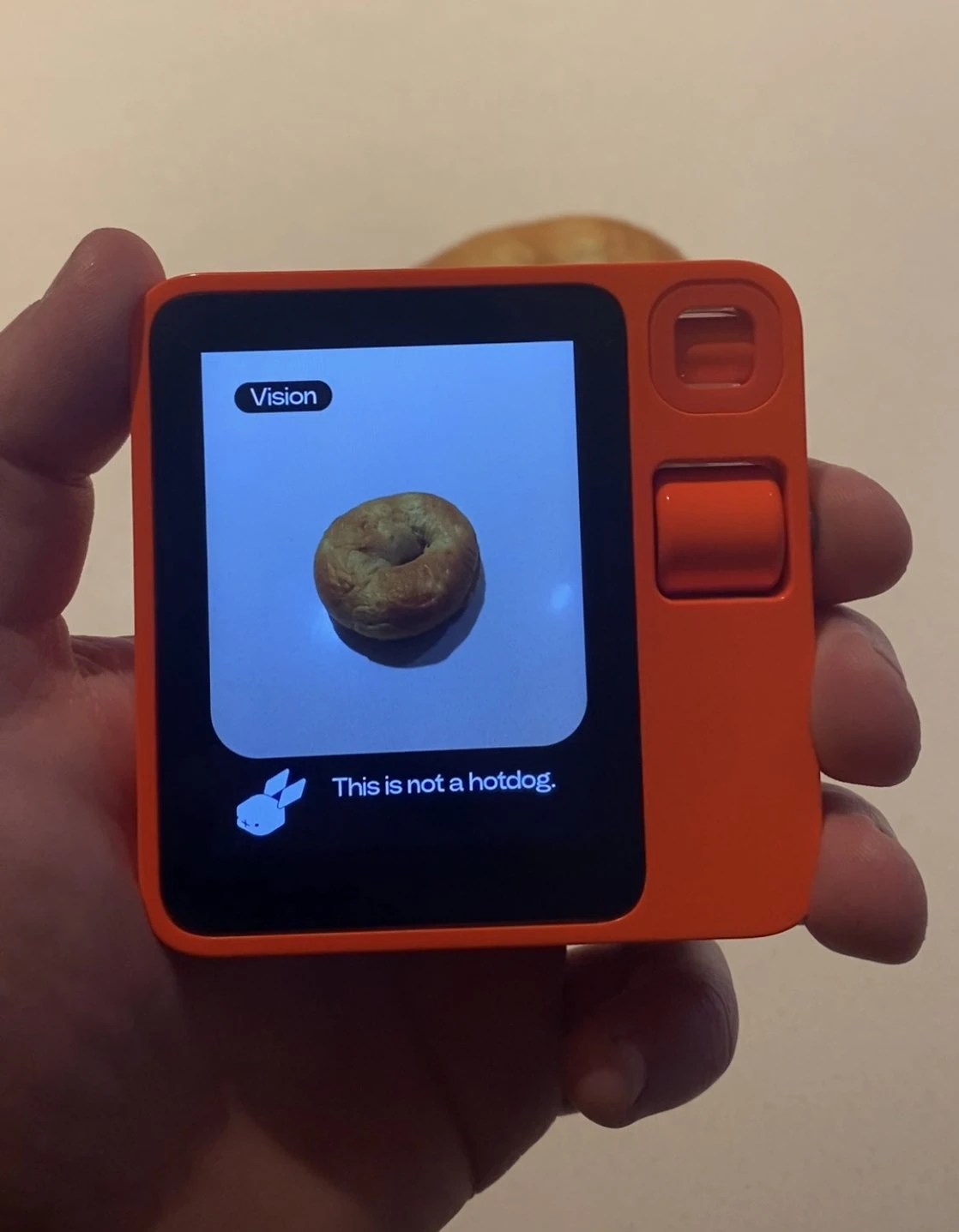
I can see a future where people use rabbit r1 for very particular use cases where phone is suboptimal. For instance, when multiple people want to interact with said phone (e.g. selecting music at a party without having to give phone away) and that is not ideal due to personal information on phone, or when the phone isn't ideal because it has too many distractions and user wants to focus on doing something (e.g. practicing a presentation using recording session and then asking for feedback).
What is the rabbit r1
Rabbit r1 was first introduced at CES 2024 as a pocket AI companion (watch the keynote here).
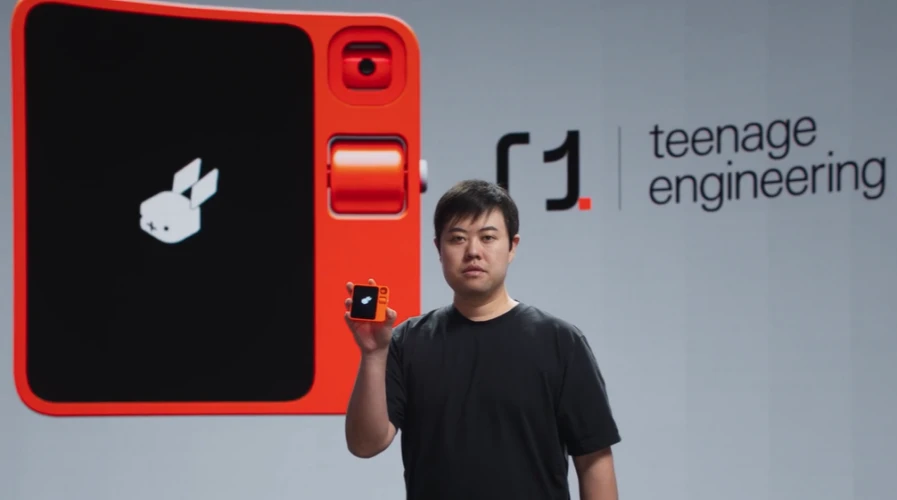
The main distinction over being just a "ChatGPT on-the-go" is the fact that they introduced what they call a Large Action Model (LAM), which is an agent capable of taking requests and making different function calls (e.g., translation, weather, finance, vision, taking notes, and more).
There are now quite a few consumer products that are trying to win this category. Here are a few:
-
AI pin from Humane. MKBHD did a good review on this product (or should I say 'bad review'?).
-
pendant from Limitless (previously Rewind AI).
-
01 from Open Interpreter. I ordered this one because it's open source and I can build on top.
While at the surface these devices are somewhat similar, they approach the problem from a different angle. AI pin relies on users to clip their device to their clothes, the pendant is put on the collar of your top and 01 is held handheld. Rabbit r1 is also handheld, but unlike the others contains a screen to interact with - so it's closer to a phone than the others.
Nonetheless, according to Jesse (rabbit's CEO) they are currently the most successful AI device in terms of sales (sold over 100,000 rabbit r1 in a few weeks).
How I got my r1
My wife saw me watching a few videos of rabbit r1 and decided to surprise me with one, a one-time $199 purchase without any subscription fee. I wonder why she didn’t do it when I was watching Apple Vision Pro 😄.
But they didn’t ship immediately. My batch was only meant to be shipped sometime in June. However, rabbit tweeted that there would be a Pickup Party in NYC. I added notifications on their X account and once they announced that registrations were open I was ready. I RSVPd and this week I attended the event to grab mine.
The event was well organized. One thing is for sure, rabbit knows how to build a community and hype with their users.
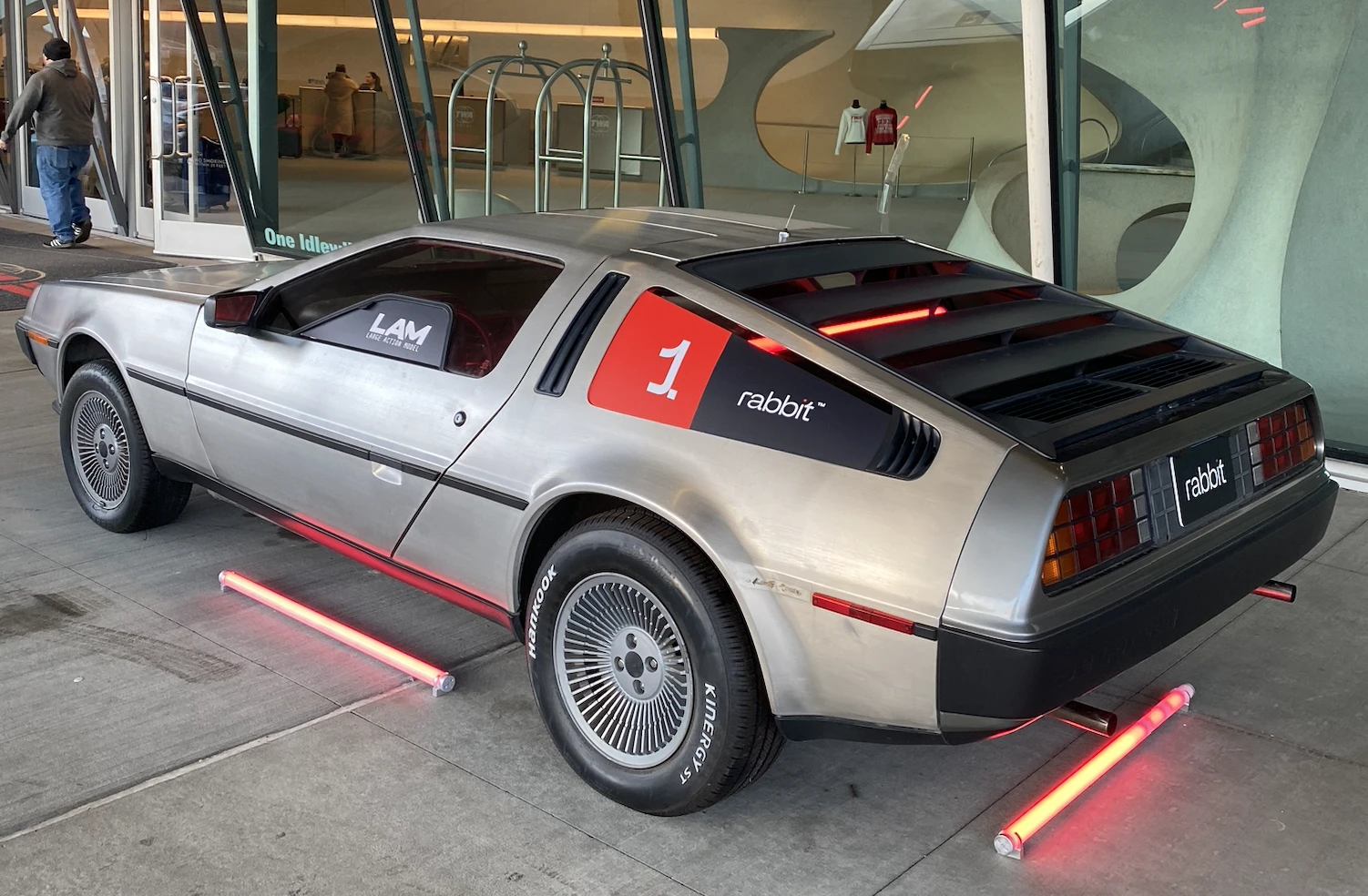
The keynote presented at the event can be found here. In it, rabbit's CEO unboxes a rabbit r1 and shows everything it can do on stage.
My experience
I have been playing with rabbit r1 for a couple of days now. A few funny things I've done since:
-
Jailbreak rabbit r1 to say f*ck which falls outside the guidelines
-
Ask it what LLM it was using under the hood, to which it said it was using a fine-tuned version of OpenAI's GPT-3
-
Have rabbit r1 make a Deez Nuts joke
-
Use rabbit r1 as a Not Hotdog app (Silicon Valley reference)
But now onto the serious stuff. Since I was at the Pickup Party where Jesse split the presentation based on the major features of the products, I want to address each of these individually after having time to play with them.
Search
For search, rabbit r1 relies on Perplexity. I'm a Perplexity fan myself and at some point I even replaced my default Arc browser search engine with Perplexity. This only lasted one day because then I realized how many times I just wanted to end up on a landing page or on someone's LinkedIn/X. It made me realize why Google is, well, Google. Regardless, this is something that I do with my phone, and so I don't think it's a strong use case.
However, if you have a kid that is curious to understand the world. I think a rabbit r1 is well worth it to use it to ask questions that they are curious about, without having the distractions that a phone provides.
Vision
What is this - I just don't think this is a strong use case overall. This is not something that you do daily, weekly, or even monthly. Maybe once a year or so. The last time I did it was last year in Mexico to know the name of an animal that was nearby. I went to Google and looked for "Mexico animal that looks like a racoon" and the first answer was Coati which was what I was looking for. If that query didn't work, I would have taken a picture of the animal and then Google search - but that's my second choice because of the effort of doing so. This to say that it's not really a pain point that users will have.
Edit spreadsheet - This is a somewhat interesting use case choice, I wonder if they picked it up because no other device showed being capable of doing this (taking a picture to a handwritten table, asking for a change and emailing the image to your email). Personally, I don't write tables that much anymore on paper, and the ones I do are small enough that if I want to transcribe it takes me seconds to do. It may be a strong use case for certain jobs, but I’m not sure about it, nor the performance it would have on large tables. The example Jesse shared at the event was a 5x3 tabl.
Terminal mode
It’s like using ChatGPT but with a worse interface. The keyboard reminds me of BlackBerry but it’s gimmicky to use - personally, I didn’t like the experience. I would always pick up my phone to use ChatGPT over using the Terminal mode for instance.
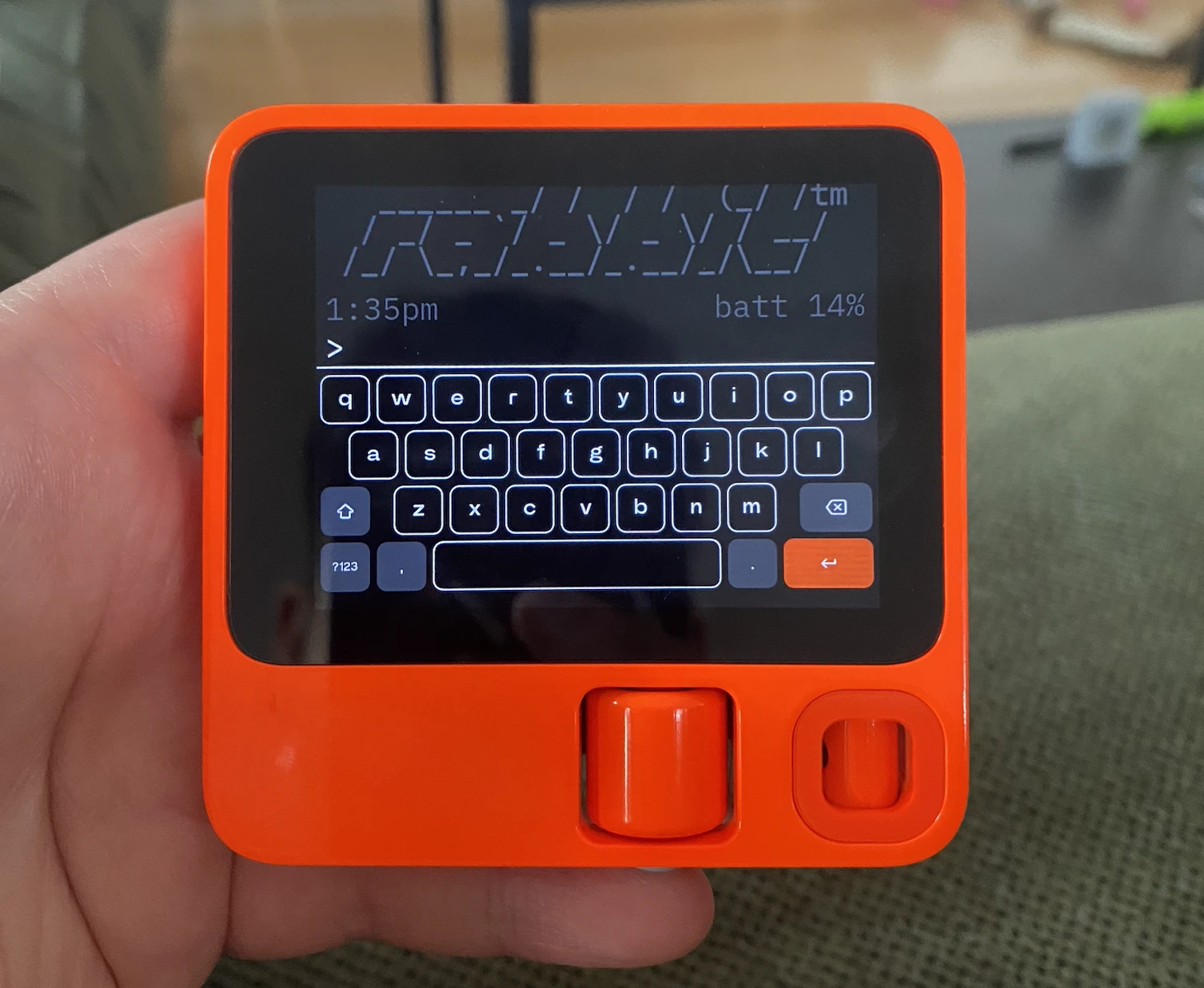
Translation
YES. Having Portuguese parents that don’t speak english, whenever they are with my wife, I need to be the translator. So having a device that allows them to translate in “real-time” both ways is a huge value add.
Yes, I know that Google already has this feature - but it's shit and if you disagree, you never actually used it. LLMs can understand expression and meaning, in a way that a model like BERT cannot. I actually did this post where I prompted ChatGPT to do exactly this - act as a device that stays in the middle of a conversation translating from one language to another based on who the speaker was (tweet here, it went kind of viral).
Sure, this could be an app, but I quite like the idea of having a device that just does this. I think that’s because the translation works both ways, so I imagine you passing the device to the other person to press the button when they want to speak. So that way, it feels more like a “common” object whereas your phone is more personal.
Although I was excited about this, and it was the first thing I tried it failed badly. The CTO of the company replied to my tweet saying that they are working on fixing it.
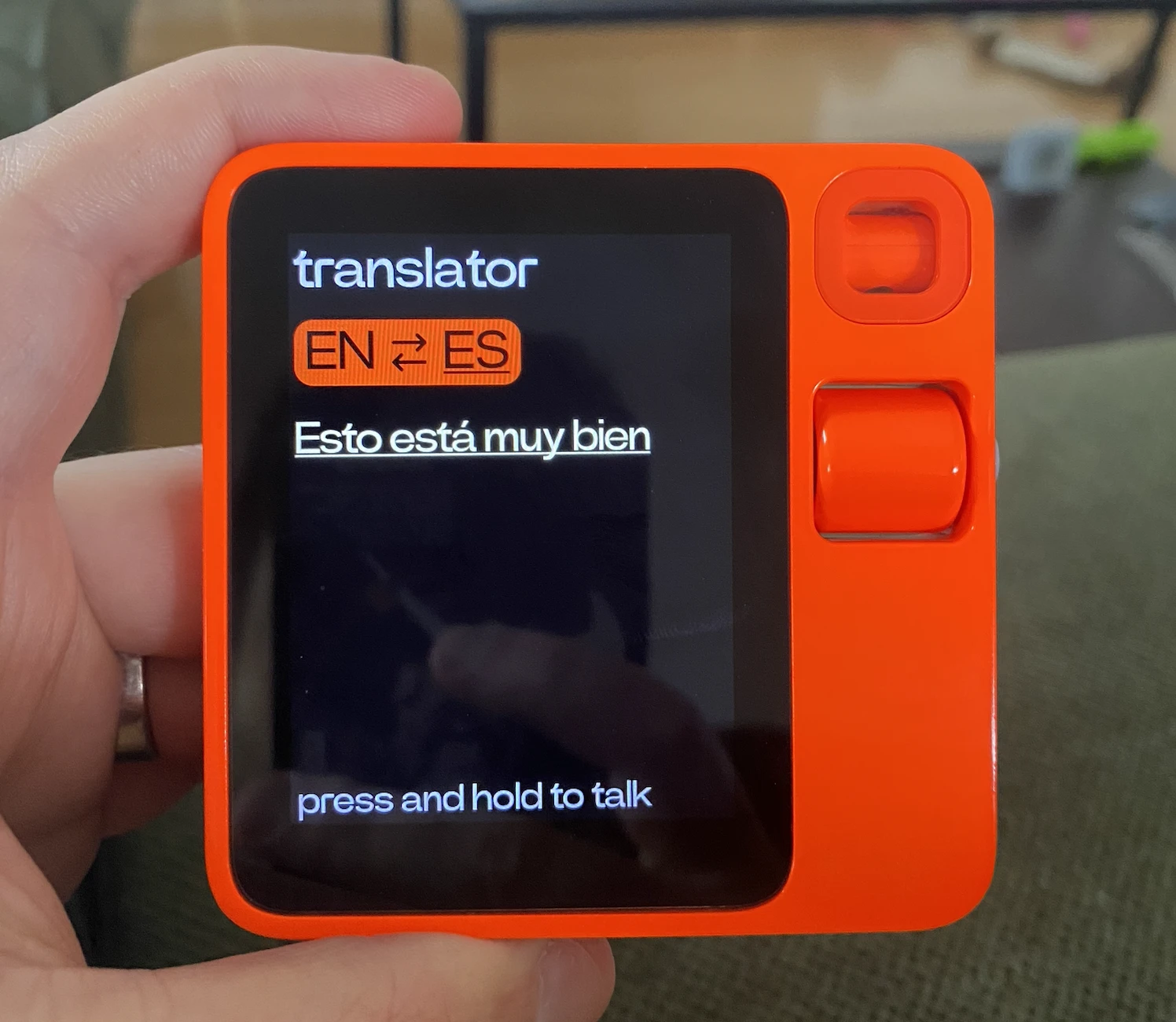
Notes
Yay, another note-taking app. NOT. I’d prefer an integration with the Apple Notes app or Notion, so I don’t need to then go into yet another website and copy-paste those notes to some other place.
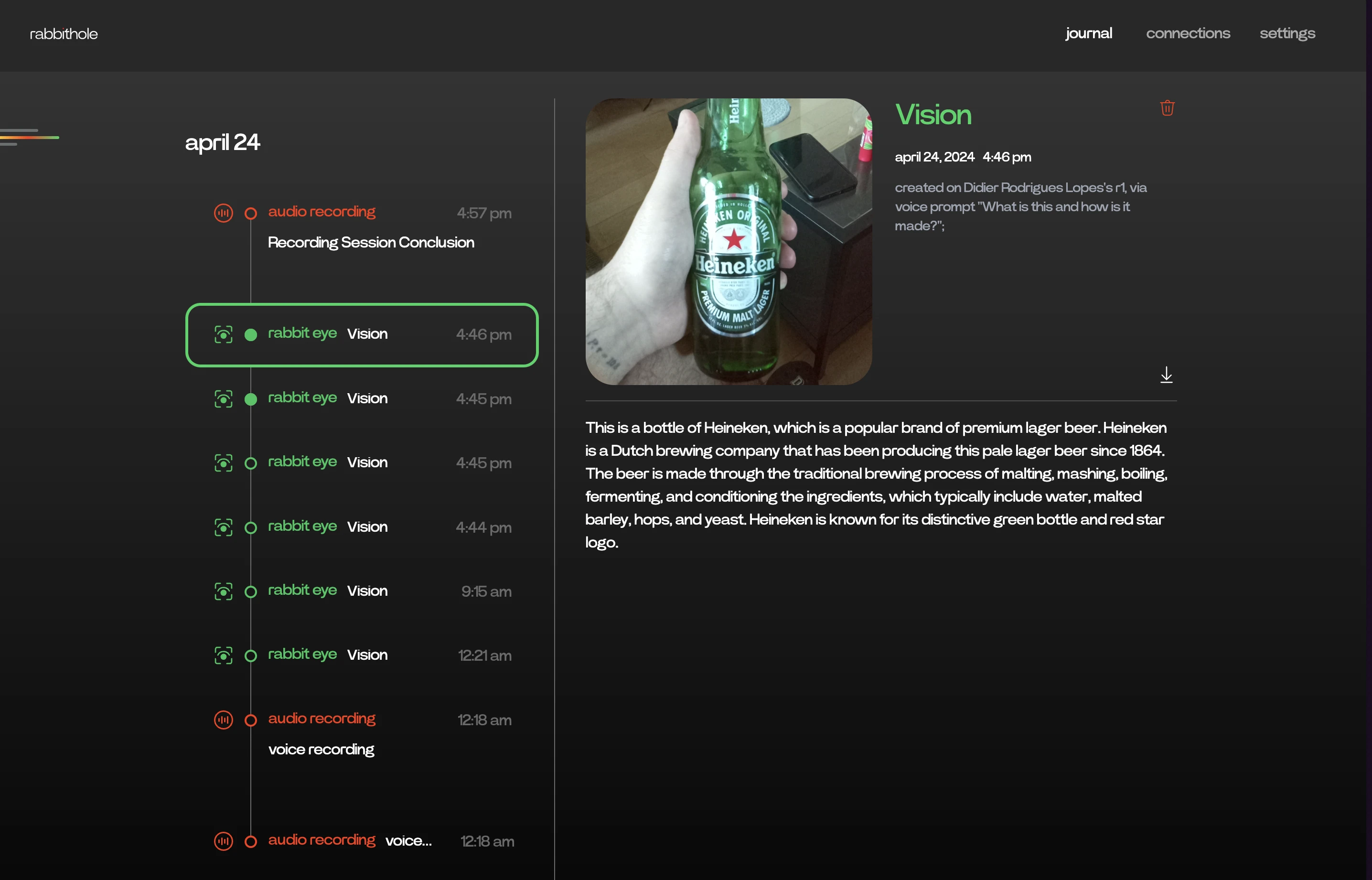
Voice Recording
The voice recording feature is pretty good. If you are a content creator (e.g., writer, youtuber), I think this is very powerful. The way I see it is that rabbit offers way less distractions than your phone, so you could go on a walk and take r1 and just speak with it to brainstorm ideas. Then go to the website and analyze your ideas to transform it into content.
Personally, when I have ideas like this I just drop a voice note to my wife’s WhatsApp and then mark the message as unread. It’s hacky but it works and I've been doing it for a long time now. We have an inside joke where I start these audios with “Note to self” and she always makes fun of it.
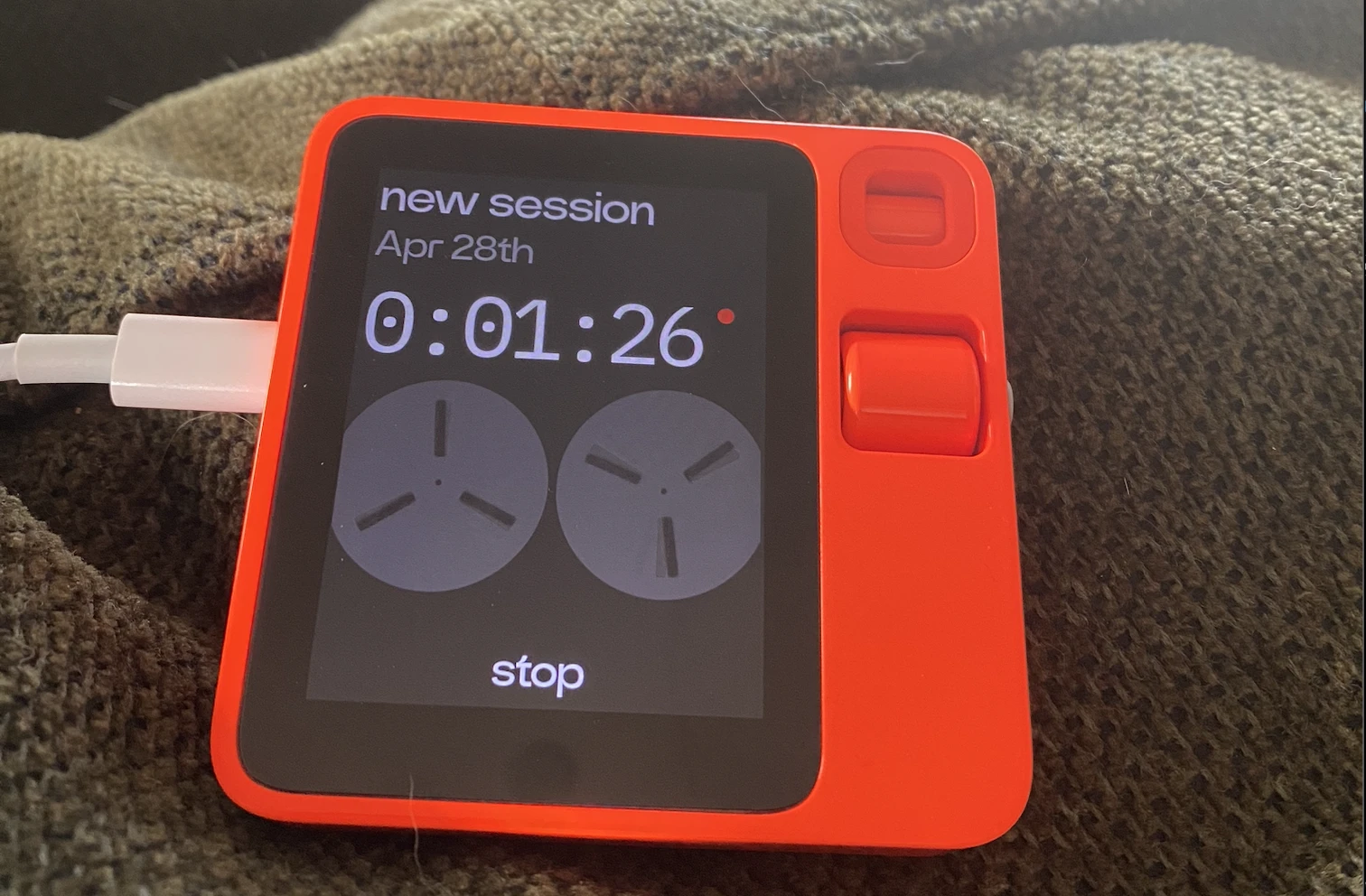
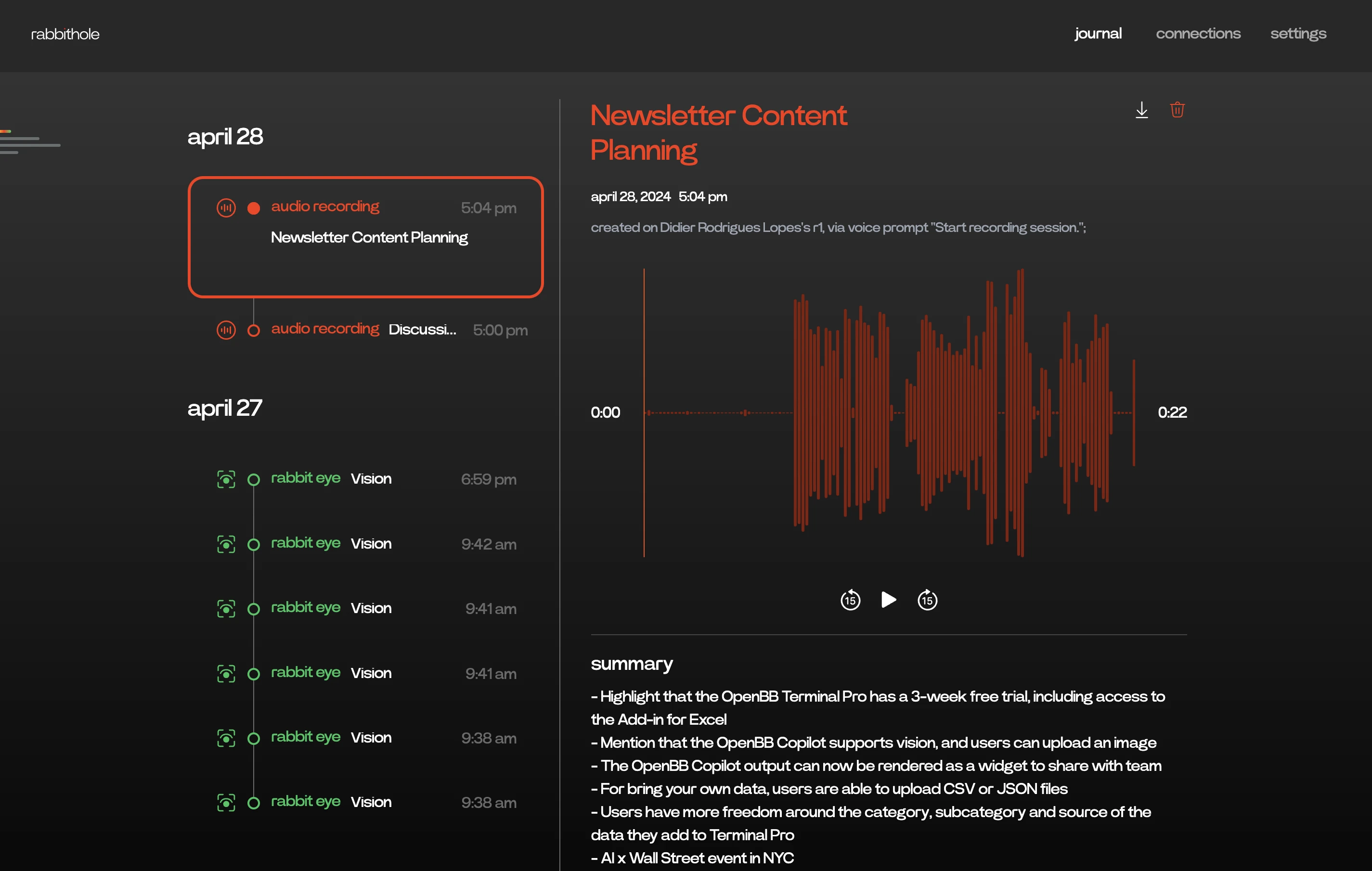
Music
Last year for my birthday my wife gave me a Divoom Ditoo-Pro Retro - it does a lot of things (e.g. music, radio, alarm, voice memo, games, music, planner, pixel art). Honestly, I just use it for music. It lived in my car during the entire year as a speaker since I didn't have bluetooth audio in the car. I think the advantage of rabbit r1 over it is that I can use my voice to change the music, which is handy if you are driving. On the other hand, my Divoom allows me to listen to my audibles since it acts as a bluetooth speaker whereas rabbit r1 would need an audible integration.
I think this can be a compelling use case as sitting in the middle of the table at a dinner or party with friends, where if someone wants to change the music they can just use the rabbit r1 to ask for something - and this way you can keep your phone/laptop on you instead of using it for everybody else to touch.
Apps
Doordash/Uber - I haven’t tried it yet, but I feel like the phone is so good at it already and with a rich UI/UX, that I don’t see the point in using rabbit r1.
Generative AI - This is an interesting use case. Personally I don’t use Midjourney so I'm not the target audience. I do find it interesting that you can generate these images on the go on r1 directly without having to go through Discord (suboptimal) experience. I'm excited about the opportunities that this presents - for instance, integrating with OpenBB Bot to display financial data on rabbit r1 directly.
Teach mode
Jesse showed a brief preview of how teach mode works but mentioned that this feature is not yet available and they want to nail the user experience and add guardrails so users cannot use it for something malicious. I'm very excited about the teach mode prospect, since I think this falls in the category of "app creation" and allows users to use the device for very specific needs, hence opening the total addressable market.
Conclusion
First of all, the rabbit r1 is beautiful. It's light, well made and has this bright appealing color. This isn't surprising since it was done in collaboration with Teenage Engineering (a company known for making products that I want without knowing what they do).
This may be controversial, but the thing I like the least about the hardware is the button being located on the right side. The reason why I hate that decision is that I cannot easily use the device with one hand only. If I try, it becomes very gimmicky where I do gymnastics just to press the button. I don't get why they didn't make it right under the scrolling wheel, it would resemble more a controller/phone which is something that our hands have long been accustomed to. Even if the button was located on the upper side of the device, the UX would be MUCH better.
That's one of my biggest complaints against the hardware itself, see image below to see what I mean. I almost need to bend my right thumb in order to reach the button which is used very often. One can argue that I can wrap my hands more around the device to give a better experiencing in clicking the button which is 100% true, HOWEVER, if I do that then I can't reach the wheel to scroll.
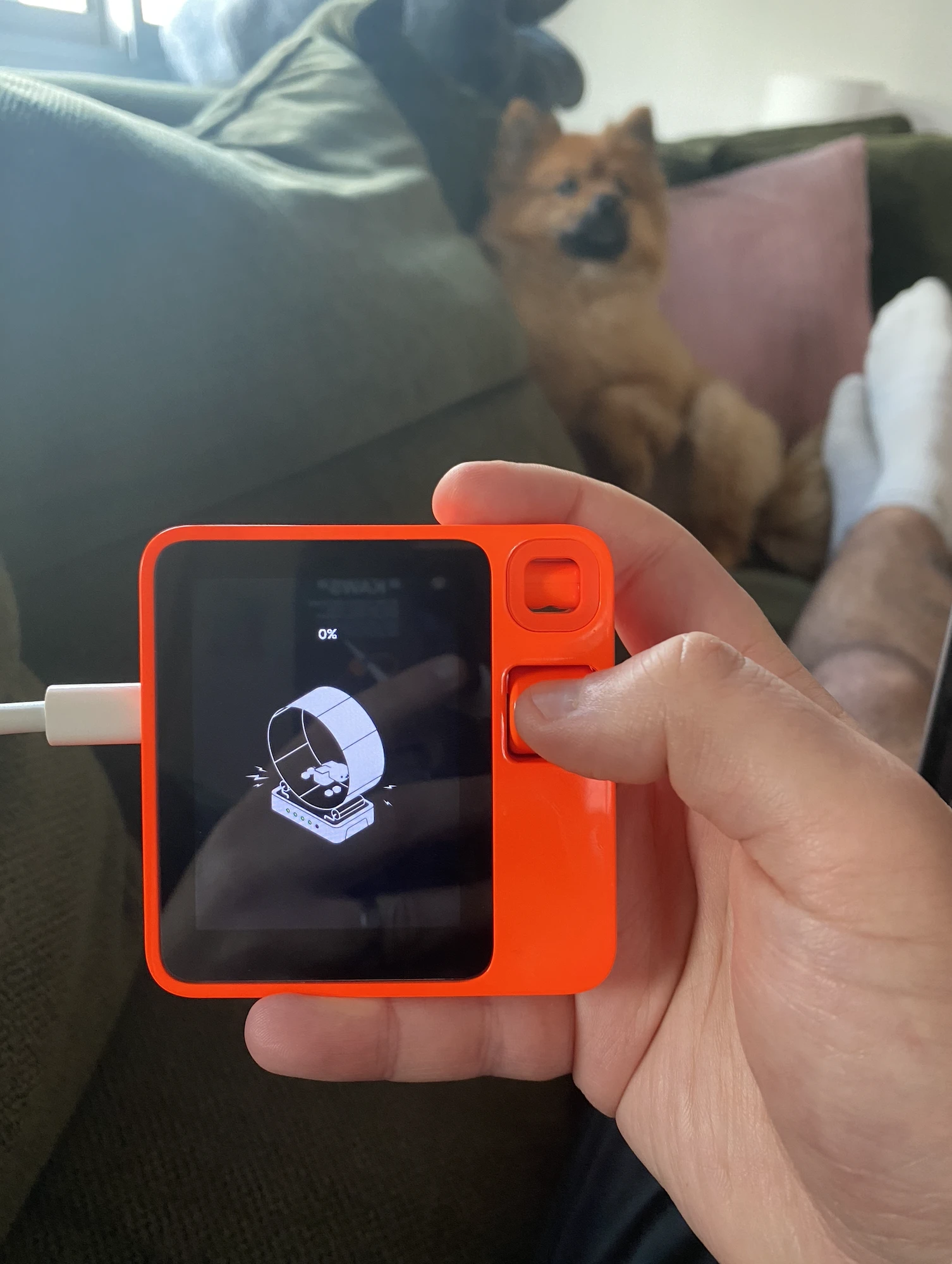
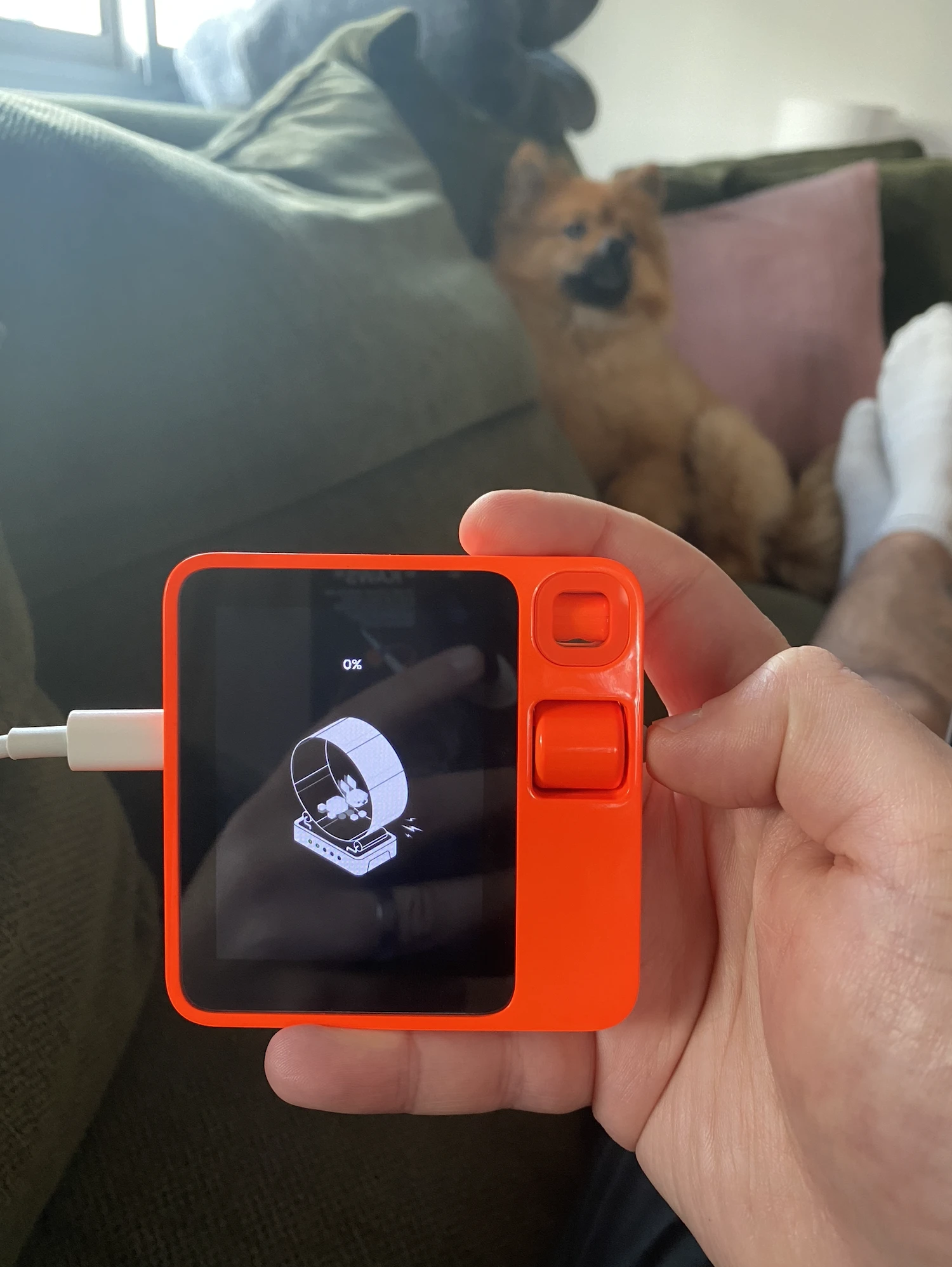
Also, related with the picture from the above. The battery is pretty weak, it needs to be charged often.
The rabbit r1 OS has a lot of room for improvement, a few things I've experienced:
- Having a black screen that doesn't recover until I manually power off device;
- Not triggering the function I want - sometimes it looks for a specific wording, e.g. "start a recording session" works but "do a voice recording" does not. I would have expected for it to be able to understand intent;
- Sometimes I get a "The app is under maintenance. Please try again later" for functions that I know it is capable of doing;
- Every few minutes getting "unable to connect to Rabbit OS";
- Randomly losing the previous context - I assume this is because of the number of tokens that can fit in the context?;
- Spotify integration broken;
- Even though it knows my location (due to getting weather app location correct), the time is not correct and I can't update it through the settings.
But this is also the first product version and LLMs are by nature non-deterministic so these type of bugs are kind of expected.
It's a one-time $199 price tag. There's no recurring subscription. As a consumer, I like this a lot. A one-time purchase allows users to buy the product to experiment without any strong commitment (apart from that one-time fee of course). In terms of economics, I'm not sure how Rabbit will handle a growing user base and better LLMs. During the event, they mentioned a partnership with both OpenAI and Anthropic. If they are using one of these models, someone needs to be paying for these tokens. For instance, for OpenBB Terminal Pro we decided to allow usage similarly to how the ChatGPT free tier works, which basically rate limits based on usage and allows us to keep our costs controlled.
Meta is attempting to commoditize LLMs, so if I were in rabbit's shoes I would consider hosting Llama 3 locally and providing inference from this directly. Maybe even do a partnership with Groq for users paying a small subscription - not so much because of the impressive 800 tokens/s inference (using Llama 3) since rabbit r1 uses voice and inference speed is less relevant, but for the cold start (i.e. the lag between user question and output). Meta's commercial license only applies to companies with over 700 Million active users, so I think Rabbit would be good for some time.
Personally, I wouldn’t recommend rabbit r1 as a phone alternative. Not even close. If someone says that they stopped using their phone after having their rabbit r1, I can guarantee you that they weren’t using their phone a lot anyway. I agree a lot with MKBHD in saying Phones are OP.
But if you are reading this, you are probably wondering what are the use cases where I would recommend Rabbit r1. So let's do that.
This is a buy if
-
For kids that are curious and want to learn more about the world. Being able to have it before a phone, is very compelling. Imagine your kid being able to ask r1 what a word means and how to use it in a sentence, who person X is, how something works, to practice learning another language, as a complement when reading a book/studying. The advantage over the phone is that it doesn't have any other distractions. It would basically be Perplexity on the go, and thus the Perplexity tagline "Where knowledge begins" makes total sense.
-
As a device for two-way translation. The two-way is important, because if it’s just one-way then using the phone is preferred. But being two-way allows for both people to interact with the device, which in my opinion is less personal than a phone and more like a gadget. We aren't there yet, but I'm sure the model will keep improving and becoming better at this.
-
For content creators who want to “zone out” and leave their phone at home and just use the record feature to record content, whether that is a blog post, a new lyrics or a podcast idea.
-
As a music device to be at the center of a table at a dinner, in the corner at a party selecting the tunes or on a roadtrip. People will enjoy interacting with it due to its unique nature, and that way you don't need to be blocked from using your phone.
-
As a virtual assistant. If the alarm feature was already implemented, I would've likely already replace my Alexa, since rabbit r1 looks much nicer. Even more with the cool standing case.
... and of course, the use case is worth $200 for you. There are likely devices that can achieve the same for a cheaper cost. I like the fact that is state-of-the-art and they are trying to innovate.
Also, the rabbit effect going up and down waiting to be prompted and the hears going up when listening is pretty sweet - see it here.
In any case, there are two recurring topics in these use cases, so let's talk about each individually.
Main use cases
-
A very targeted use case - The phone can be a double-edged sword. On the one hand, it's your door to the world and what's happening. On the other hand, it's your door to the world and what's happening. I say it this way because this can be extremely good or bad depending on the use case. Phones are optimized for users to spend time on them, apps are optimized to provide dopamine hits so users use them for longer. Notifications will interrupt you throughout the day so you remember to go back to the app, etc.. But sometimes you only want to do 1 thing, and don't want to be distracted from it. The best example are E-Books. You can read on your phone, iPad or laptop - yet people decide to buy a kindle so they can just do that. Read with no distractions. You are paying a premium for a product to remove the distractions. I believe that rabbit r1 can achieve this, particularly if they allow developers to build specific apps for specific use cases.
-
Gadget to be used by multiple people (examples above: two-way translation or music device) - The phone has become a very personal device over the years. If someone gets access to your phone unlocked they have access to who you are (important emails, personal photos, chat conversations, the apps you use and how do you spend your time, the songs you listen or books you read, even confidential documents). So, there are certain scenarios where you don't want to borrow your phone to someone to do something, since that requires trust that they won't see anything that is confidential. I think Rabbit r1 can go after this category because its a shiny gadget that doesn't really hold any personal information from the user, and this way allows the user to keep their phone in their pocket while using rabbit r1 for some tasks that the phone could also do but would require for others to have access to it.
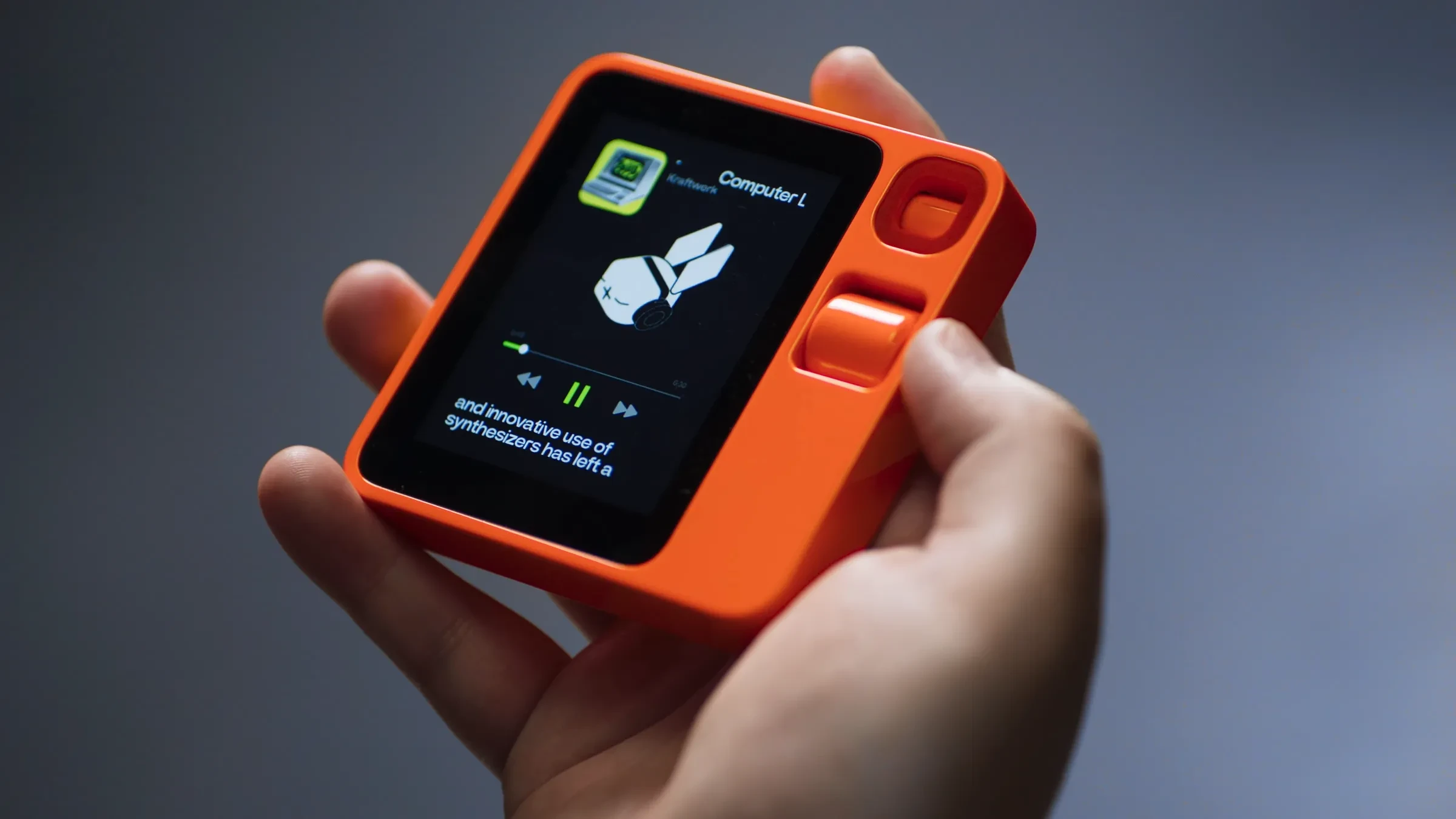
Excited about
Developer Ecosystem
Apple became Apple not because of their revolutionary LCD screen without a keyboard, but because of the developer ecosystem they created. The iPhone became stickier over time, because there were more apps being built on top of it that users could easily tap into. It also allowed Apple to generate revenue from the monetization of these apps.
I truly hope that this is the direction that Jesse and team want to take. If I were in their shoes, I would prioritize that over any other feature. Just allow developers to create apps (in this case functions) that the LAM can call to do something very specific.
Instead of having their team working on all these features, create the foundational marketplace that allows developers to do so. Start by only allowing free apps and see what developers are building and what users are utilizing. Then move to allow developers to monetize and take a cut from it. And allow users to decide what apps are enabled within their devices and which ones aren't - show which apps are the most downloaded and used and link it to a user profile. Make it so that the user profile needs to be a rabbit r1 holder to avoid scams..
A few examples: Someone building a Pokedex app for animals, you take r1 to the zoo and just take a picture of the animals with it, then you go home and look into your pokedex. Or a Pokedex for travel monuments. Or integrating OpenBB so I could do research on-the-go.
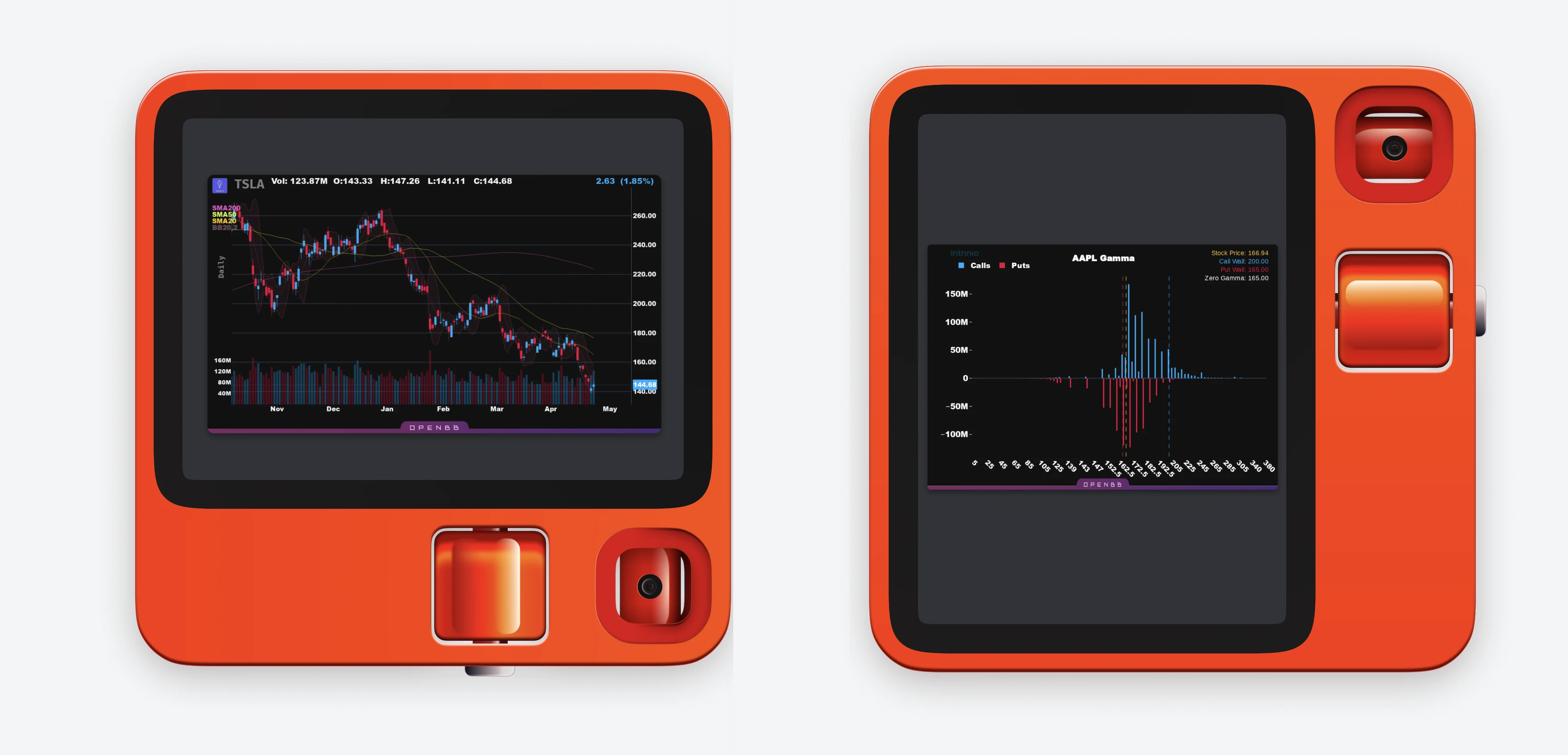
Native AI-phone
Nothing has one of the best consumer tech brands out there. If the Apple ecosystem wasn't as sticky as it is today, I would buy one. Both Nothing and Rabbit are very unique brands, and I think a partnership between them could be a game-changer.
I'm imagining a Native AI-phone built on Android with rabbit's LAM. So, in simple terms, it would be like Nothing Phone (2) but it would have an r1 button that you can use to interact with it through voice instead of fingers. The challenge would be combining the LAM from rabbit r1 to all the apps that Nothing Phone (2) provides - but I believe in a future where applications will be built not only thinking about how humans will utilize them but also LLMs - at least we are doing that at OpenBB with the OpenBB Platform.